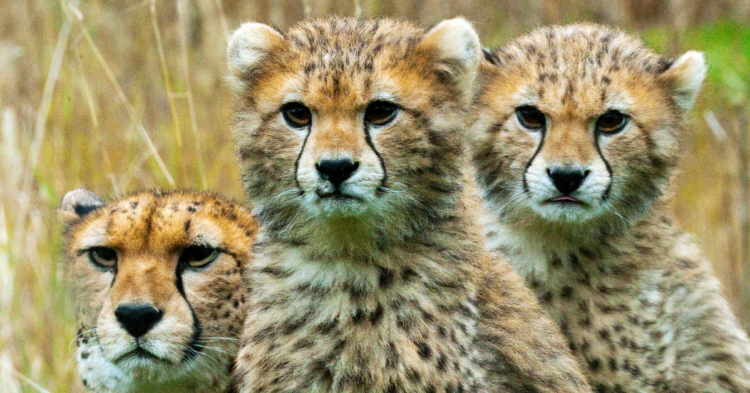The rise of the ultra-rich illegally purchasing smuggled cheetahs to keep as pets is steadily causing the species to go extinct, and experts fear it will only be a few years before the cats are gone for good, CNN reported.
The exotic pet trade has seen cheetah numbers dwindle dramatically. With the help of social media, it’s only getting easier for the elite to purchase cubs for themselves.
Cheetahs are the world’s fastest land animal, but they’re also Africa’s most endangered big cat.

In the last 100 years , the world has lost around 90 percent of its cheetah population. As of today, there are less than 7,500 of these cats left in the wild, with another estimated 1,000 being held captive in Gulf countries.
This, conservationists say, is where many have been bought and sold via illegal online sales.
There is a high demand to keep cheetahs as pets, and it’s while illegal to take cheetahs from the wild, policing is notoriously lax.

According to the Cheetah Conservation Fund (CCF), some 300 young cheetahs are trafficked out of Somaliland into the Arabian Peninsula every year. From there, the cubs are often sold as pets through Instagram and YouTube, appearing on the social media sites next to car and cellphone ads.
As the foundation has reported, this smuggling trend has reached “epidemic proportions.”
Most of these cheetah cubs end up as “pets” in Gulf mansions, flaunted as lavish status symbols.

The demand for these exotic animals is highest in the Middle East, with some people paying over $6,000 to own their own cheetah.
It’s estimated that only one in six cubs actually survives the traumatic journey to buyers, and even if they make it to their new “home”, most only live for another one or two years.
Those who purchase the cats are dramatically unprepared and unable to provide them their proper dietary needs.

Cheetahs’ diets are extremely particular and very difficult to meet. When kept as pets, these animals can easily die as a result of malnutrition or inadequate veterinary treatment. Some die as a result of stress-related diseases and obesity due to their confinement.
According to the CCF, even if the cubs are intercepted by conservationists during their smuggling, their chance of survival is still extremely slim.
CCF founder and American conservation biologist Laurie Marker seems a grim future for cheetahs.

“If you do the math, the math kind of shows that it’s only going to be a matter of a couple of years [before] we are not going to have any cheetahs,” she said, adding, “Those people who have cheetahs as a pet are causing the species to go extinct.”
In an interview with CNN , one veterinarian in a Gulf country confirmed that captivity is “a dead-end for cheetahs.”
As social media continues to allow for the exotic pet trade to thrive, pressure has been placed on these sites to put a stop to the illegal activity.

Last year, 1,367 cheetahs were documented as being up for sale on social media platforms, largely conducted through Instagram and YouTube with the three top sellers of cheetahs being based in Saudi Arabia.
Illegal animal trade used to predominately take place on Facebook, but the social site has since doubled down on eliminating abusers. The company, which also owns Instagram, has pledged to reduce online trafficking by 80 percent by 2020 after joining the World Wildlife Fund’s Coalition to End Wildlife Trafficking Online.
h/t: CNN , Cheetah Conservation Fund

















































